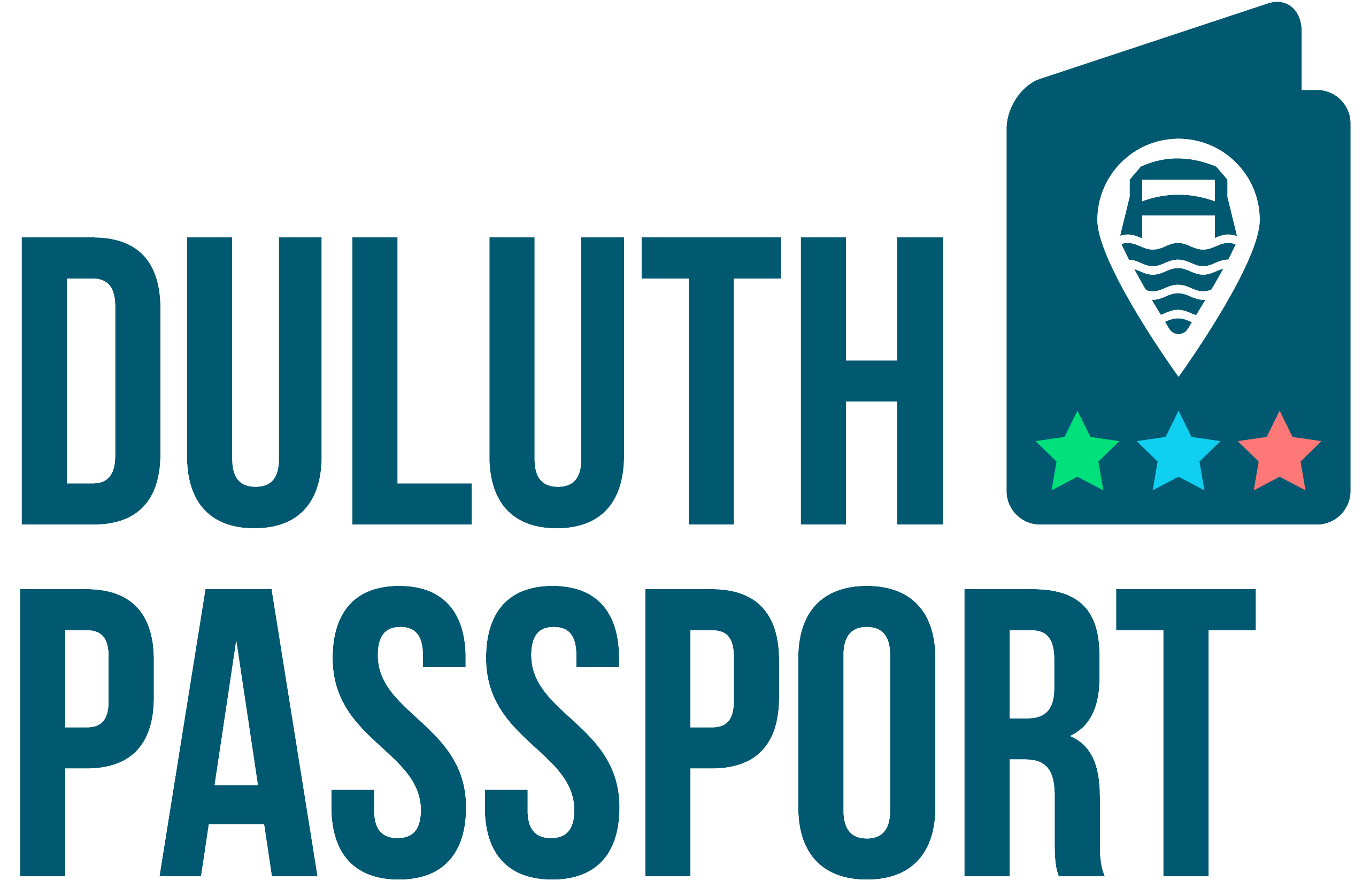A BRIEF HISTORY
The following information about Duluth is from wikipedia.org
Duluth is a seaport city in the U.S. state of Minnesota and is the county seat of Saint Louis County. The fourth-largest city in Minnesota, Duluth had a population of 86,265 in the 2010 census.[6] Duluth is the second-largest city on Lake Superior’s shores, after Thunder Bay, Ontario, and has the largest metropolitan area on the lake. The Duluth MSA had a population of 279,771 in 2010, the second-largest in Minnesota. The combined urban population of Duluth and its adjacent communities — including Proctor, Hermantown, and Superior, Wisconsin — totals over 131,000, based on 2010 census figures.
Situated at the westernmost point of the Great Lakes on the north shore of Lake Superior, Duluth is accessible to oceangoing vessels from the Atlantic Ocean 2,300 miles (3,700 km) away via the Great Lakes Waterway and the Saint Lawrence Seaway.[7] Lake Superior is generally considered the largest freshwater lake in the world by surface area.
Duluth forms a metropolitan area with Superior called the Twin Ports. The cities share the Duluth–Superior harbor and together are the Great Lakes’ largest port transporting coal, iron ore (taconite), and grain. A tourist destination for the Midwest, Duluth features America’s only all-freshwater aquarium, the Great Lakes Aquarium; the Aerial Lift Bridge, which spans the Duluth Ship Canal into the Duluth–Superior Harbor; and Minnesota Point (known locally as Park Point), one of the world’s longest freshwater baymouth bars, spanning 6 miles (9.7 km).[8] The city is also the starting point for vehicle trips along Minnesota’s North Shore.[9]
The city is named for Daniel Greysolon, Sieur du Lhut, the first known European explorer of the area.
LAKE FACTS
The Ojibwe call the lake gichigami, meaning “be a great sea.” Henry Wadsworth Longfellow wrote the name as “Gitche Gumee” in The Song of Hiawatha, as did Gordon Lightfoot in his song, “The Wreck of the Edmund Fitzgerald“. According to other sources the actual Ojibwe name is Ojibwe Gichigami (“Ojibwe’s Great Sea”) or Anishnaabe Gichiami (“Anishinaabe‘s Great Sea”).[7] or taught in Ojibwe language classes as gichigami, gitchi-gami or kitchi-gami.[8] The 1878 dictionary by Father Frederic Baraga, the first one written for the Ojibway language, gives the Ojibwe name as Otchipwe-kitchi-gami (reflecting Ojibwe Gichigami).[8] The first French explorers approaching the great inland sea by way of the Ottawa River and Lake Huron during the 17th century referred to their discovery as le lac supérieur. Properly translated, the expression means “Upper Lake,” that is, the lake above Lake Huron. The lake was also called Lac Tracy by 17th century Jesuit missionaries.[9] The British, upon taking control of the region from the French in the 1760s following the French and Indian War, anglicized the lake’s name to Superior, “on account of its being superior in magnitude to any of the lakes on that vast continent.”[10]
Have questions before your visit?
Whether you have questions about places to stay, things to do, or how our Duluth pass works, you can send us a message below and we’ll respond to you shortly!
The Duluth Passport is about a 25% discount among the three attractions!
Buy Your Passport
Includes all 3 passes, and is valid anytime for the summer operating season, starting May 1st and expires September 15th


